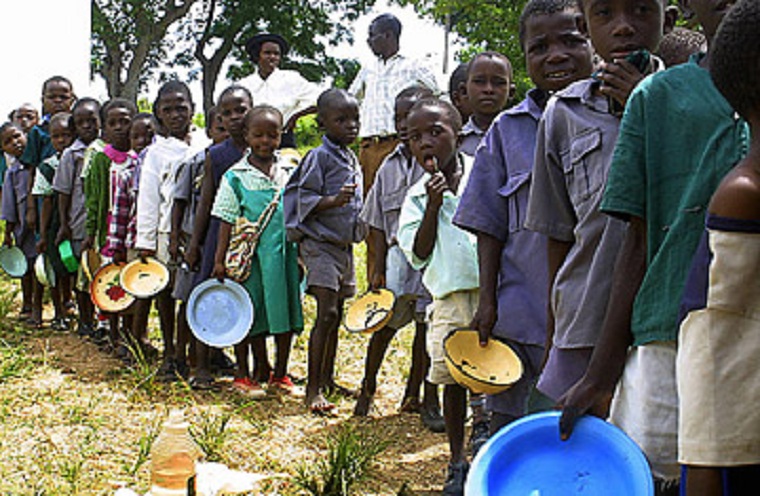 For the people of Zimbabwe, an outbreak of coronavirus could be devastating. But many say hunger feels like the more immediate danger.
For the people of Zimbabwe, an outbreak of coronavirus could be devastating. But many say hunger feels like the more immediate danger.
“The real danger for us is hunger. If I stay at home as recommended by the government, my family will starve. Who will feed them?” says Jonas, a father of three in Harare.
Like much of the world, Zimbabwe is currently on a national lockdown. The restrictions come at a time when much of southern Africa has been facing severe droughts caused by the climate crisis. This has led to families struggling to feed themselves.
It’s also a nation with a crippled economy, high unemployment and soaring inflation. According to its government, more than 50 per cent of people struggle to put a meal on the table.
In the last few weeks there has also been a rise in the number of Malaria cases reported, with 201 outbreaks in different parts of the country, according to Zimbabwe’s Ministry of Health.
Thankfully, official numbers of coronavirus cases have been relatively low so far compared to Western Europe (40 cases as of 29 April), but the impact of lockdown is already putting great strain on people’s lives. If a major outbreak hits, the health system will struggle to cope without basic resources like gloves, painkillers and even doctors.
In the Zimbabwean language of Shona there is a saying: “kuwedzera nhamo pane imwe nhamo”, which translates as “adding problems onto other problems”.
According to Earnest Maswera, Tearfund’s Country Director for Zimbabwe, the phrase is on many people’s lips right now.
Much of southern Africa has been facing severe droughts caused by the climate crisis.
Earnest goes on to say, “If it was just the disease I guess we could find somewhere to start from, but then the disease has brought with it a lockdown – a real lockdown – and this is so hard for people.”
For 36-year-old Tafadzwa coronavirus is leaving people stretched. “Our nets are completely empty and this will only make things worse,” he says. “The struggle is real in Zimbabwe and it seems it’s never good news for us.”
The lockdown also means children can’t go to school. For 14-year-old Mary*, whose mother is an office cleaner in Harare, it’s a sad time. “I’m losing my education as we don’t have any WiFi at home so I can’t do any research.”
She’s also worried about other children. “Street children rely on people going out to work [to beg for money and food], but I don’t know how they will survive.”- Tearfund.
(151 VIEWS)


